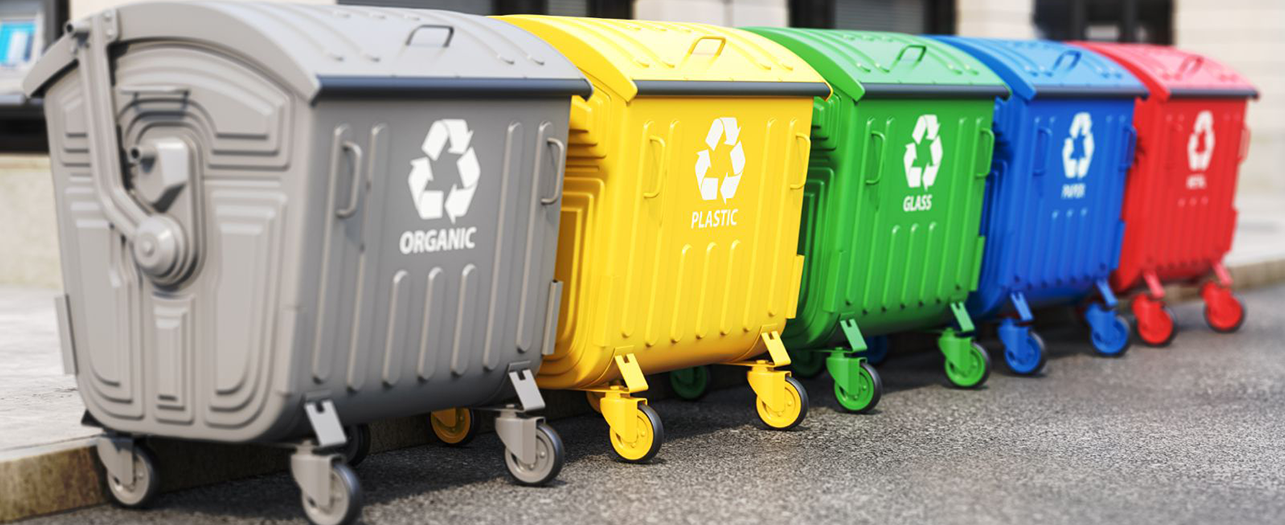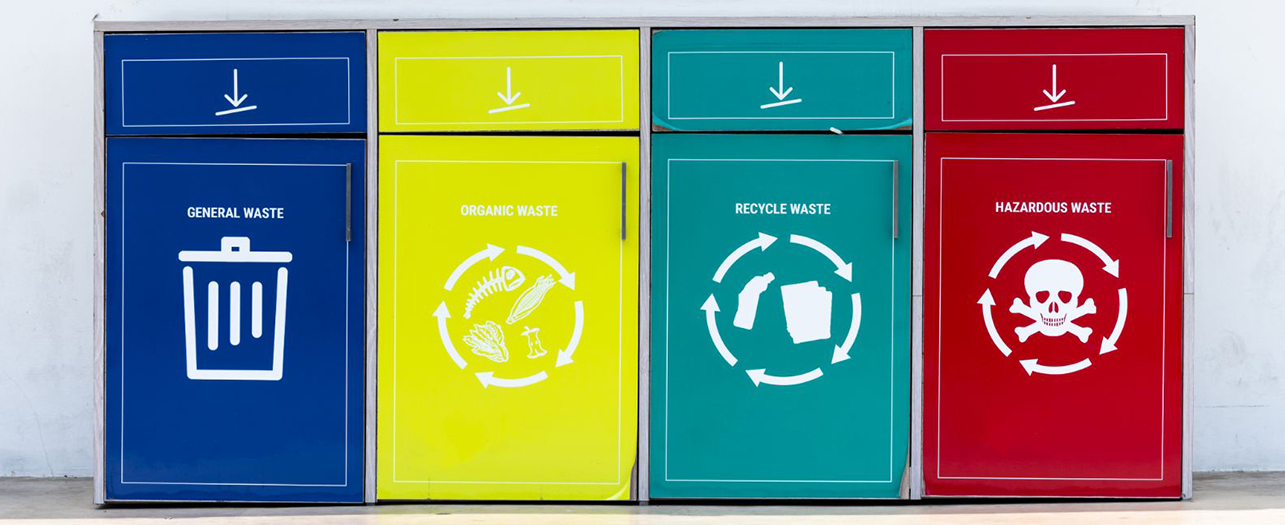Recycling labels are a small change with a practical impact. In busy urban settings, clear labels help people use the right container at the right time. That simple step improves the sorting of waste for recycling and makes the entire waste sorting system more reliable. Responsible waste management is no longer negotiable, in a world that is actively working to reverse climate change, and Dubai, a city with a rapidly developing cosmopolitan economy is adopting modern methods of waste management to stay ahead of the curve. POWER Bear is a significant contributor in this regard, with its range of customizable recycling bins.
The Role of Recycling Labels
Labels give quick guidance. They reduce guesswork for visitors, staff and tenants. When people can see what belongs in a recycling bin at a glance, contamination drops and material that can be recycled is more likely to reach the right processing stream. In a place with many users and high footfall, clarity matters.
Design and Placement Matter
Good labels are short, visual and consistent. Use a mix of words and simple icons so language is not a barrier. Place labels at eye level on the front and lid of a waste sorting bin. For multi-compartment units, label each compartment clearly. Consistent placement across a site helps people form the right habit.
How Labels Work With a Waste Sorting Bin
A waste sorting bin becomes useful only when its sections are understood. Labels that show common items for each compartment make everyday decisions easier. For example, a compartment labelled for paper should include pictorial cues for envelopes, newspapers and loose sheets. That kind of specificity reduces mistakes that spoil an entire batch of recyclables.
Labels and the Wider Waste Sorting System
Labels are one element of a larger waste sorting system. They work best when combined with practical container choices, regular collections and trained staff. Contractors and facilities teams also benefit. When incoming loads are cleaner, downstream handling is simpler and more predictable.

Training and Communication
Labels are effective, but they do not replace communication. Short staff briefings, tenant notes and visible posters reinforce the message. Periodic reminders and simple audits help maintain standards. Students, visitors or staff who see the same label language and icons across multiple sites are more likely to use the bins correctly.
Custom Labels for Different Contexts
Different sites need different labels. A food court label should highlight organic waste and packaging, while an office area label should focus on paper and mixed recyclables. Labels that reflect local usage patterns reduce confusion and align with contractor requirements. For commercial settings, designer bins with customizable labels are a good option; for example, POWER Bear’s range of designer bins allows clients to specify label layouts that match site needs and branding.
Benefits for Dubai Settings
Clear recycling labels support local recycling objectives in a practical way. They reduce contamination, make contractor handovers easier and support cleaner sorting of waste for recycling. In busy locations such as malls, schools and offices, labels help many different users make the right choice quickly.
Practical Tips for Implementation
- Keep labels short and visual. Use icons plus two or three words.
- Standardize labels across a campus or building. Repetition builds habit.
- Place labels on the front and lid of each compartment.
- Update labels for special events or temporary streams, such as packaging from promotions.
- Match labels to contractor guidance so collected loads meet acceptance rules.
Measuring Success Without Numbers
You do not need detailed reports to see improvement. Look for fewer visibly contaminated bins during routine checks and smoother handovers to contractors. Short feedback loops from cleaning teams and collection partners will show whether label changes are working.
Conclusion
Recycling labels are a cost-effective step that strengthens the sorting of waste for recycling. When labels are well designed, consistently placed and supported by simple communication, they make day-to-day decisions easier for users and handling easier for operators. In Dubai’s varied settings, clear recycling bin labels help turn good intentions into reliable practice.


